General Secretary To Lam visits people coming to do administrative procedures at the Phuc Thinh Commune Administrative Center, Hanoi City, July 1, 2025_Photo: VNA
The connotation of revolutionary ethics is very broad, encompassing many qualities and has been mentioned in many documents and regulations. While Regulation No. 144-QD/TW, dated May 9, 2024, of the Politburo clearly stipulates the revolutionary ethical standards of cadres and party members in the new period, Directive No. 42-CT/TW of the Politburo focuses on emphasizing the five qualities of "diligence, thrift, integrity, uprightness, impartiality", because these are the top, indispensable qualities of cadres and party members.
Top five qualities of cadres and party members
During his lifetime, President Ho Chi Minh always emphasized revolutionary ethics and character, party member character and duty, and the qualities of diligence, thrift, integrity, uprightness, impartiality. President Ho Chi Minh wrote many articles and speeches on this issue, in which he explained in detail what diligence, thrift, integrity, uprightness, impartiality are, the importance of the above qualities, and pointed out measures and methods for education , learning, training, and practice. In the work Diligence, Thrift, Integrity, and Impartiality , President Ho Chi Minh pointed out:
Need is diligent, hard-working, persistent. Need to stick to the plan, meaning must calculate carefully, arrange neatly when working then Can will be effective (1) .
Saving is thrift, not extravagant, wasteful. Need and Thrift must go together. Need without Thrift, "then work as much as you can". Thrift without Need, work forever without increasing, without development. Thrift requires not only saving wealth, money, raw materials but also saving time, saving people's strength, human strength. It should be noted, Thrift is not stingy. When it is not advisable to spend, do not spend a single coin. When there is work worth doing, work that is beneficial to the people, to the Fatherland, then no matter how much effort, how much money is spent, it is still a pleasure (2) .
Integrity is clean, not greedy. Integrity must go hand in hand with Thrift. Just as Thrift must go hand in hand with Diligence. Only with Thrift can there be Integrity. Cadres and party members must not only practice Diligence and Thrift but also practice Integrity to set an example for the people (3) .
Main is straightforward and upright. Diligence, Thrift, and Integrity are the roots of Justice. Justice is the completion of Diligence, Thrift, and Integrity (4) .
Regarding impartiality , in the work "Reforming the way of working" , President Ho Chi Minh wrote: "If we only know how to work for the Party, for the Fatherland, for the people, then we will progress to impartiality. If we are impartial, our shortcomings will become less and less, and the following good qualities will increase more and more" (5) .
Notably, in the 5 qualities mentioned above, President Ho Chi Minh said that diligence, thrift, integrity, and uprightness are the 4 basic virtues of a human being. If "one of the virtues is missing, then one cannot become a human being" (6) . Therefore, all cadres, party members, and people need to learn and practice diligence, thrift, integrity, and uprightness. According to President Ho Chi Minh's explanation, the virtues of diligence, thrift, to improve productivity, quality, efficiency, and fight waste in all activities, especially work, study, labor, and production; the virtues of integrity and honesty to protect public property, fight against embezzlement, misappropriation, and theft of people when performing public duties. Regarding the quality of impartiality , He pointed out that this is the responsibility of cadres and party members, who are both public servants and revolutionary leaders, and must be ready to sacrifice personal interests to serve the Party, the Fatherland, and the people: “Revolutionary ethics is that no matter the circumstances, party members must put the interests of the Party above all else. If the interests of the Party and personal interests conflict with each other, then personal interests must absolutely obey the interests of the Party” (7) . He reminded: “In our Party, there are still people who have not learned or practiced the four words “impartiality”, so they suffer from individualism” (8) .
Therefore, in the policy of educating the whole people, President Ho Chi Minh proposed "opening a campaign to re-educate the people's spirit by implementing: Diligence, thrift, integrity, and uprightness" (9) ; When instructing cadres and party members, he required: "Every party member and cadre must be truly imbued with revolutionary ethics, truly diligent, thrifty, honest, upright, and impartial" (10) .
Background of Directive No. 42-CT/TW
The fight against corruption, negativity and waste in recent times has been led and directed by our Party and State resolutely, systematically and persistently, with many synchronous, comprehensive and in-depth solutions gradually implemented and has achieved remarkable results. However, the reality is that, although it has been handled very strongly and with high deterrence, the institution building has been increasingly synchronous and strict, and the control of power has been increasingly tightened, corruption and negativity still continue to occur, with some even being very serious.
Faced with the above situation, the Central Steering Committee on preventing and combating corruption, waste and negativity, the Politburo and the Secretariat unanimously agreed that in order for the fight against corruption, waste and negativity to achieve the desired results, it is necessary not only to promote the work of detection and handling, but also to pay attention to the work of prevention, in which prevention is the main, fundamental, long-term, and detection and handling is important and urgent. In the work of prevention, education on integrity and revolutionary ethics is an important task and solution.
Looking back from the early stages of the fight against corruption and negativity, our Party soon proposed two pillars (Don't dare and Can't) . Later, from practical requirements and drawing on leadership experience, the 13th National Party Congress added two new pillars (Don't want and Don't need).
Our Party affirms that in order for the fight against corruption, waste, and negativity to be effectively and firmly implemented, it is necessary to synchronously carry out the "Four No's" (Don't dare, Can't, Don't want, Don't need). and in the first task of Directive No. 42-CT/TW of the Politburo also reaffirmed these four pillars.
To realize this important policy, the Politburo and the Central Steering Committee on anti-corruption, waste and negativity have assigned the Central Internal Affairs Committee to preside over and coordinate with Party Committees and relevant agencies to develop a Project to advise the Politburo to issue a Directive on strengthening the Party's leadership in integrity education. The Project was carefully prepared, seriously absorbing the guiding opinions of the Politburo, of General Secretary To Lam, and comments from Party committees and organizations directly under the Central Committee. and many experts, scientists, and international experience. Other important ethical elements including “diligence, thrift, impartiality” have been proposed to be added to the Project, ensuring a more comprehensive revolutionary ethics education, especially since our Party advocated adding the task of preventing and combating waste , placing the task of preventing and combating waste on par with the task of preventing and combating corruption and negativity.
Staff of the Public Administration Service Center of Hoan Kiem Ward, Hanoi City, carry out administrative procedures for people_Photo: VNA
Important new points of Directive No. 42-CT/TW
Directive No. 42-CT/TW of the Politburo has a length of 6 pages, assessing the advantages and limitations in the work of revolutionary ethics education in the past time, proposing 8 groups of tasks and comprehensive solutions to strongly strengthen the work of education and practice of diligence, thrift, integrity, uprightness, impartiality in the coming time. Directive No. 42-CT/TW is a "handbook" for Party committees, Party organizations, and functional agencies to create strong changes in the work of revolutionary ethics education for cadres, Party members and people of all walks of life. Notable new points of Directive No. 42-CT/TW are as follows:
Firstly , the Politburo oriented to "implement education on diligence, thrift, integrity, impartiality for both the public and private sectors with appropriate content and scope".
In addition to focusing on cadres and party members, the Politburo advocates educating revolutionary ethics for all other sectors of society, such as students, union members, members of mass organizations, intellectuals, artists, workers, farmers, businessmen, especially the families of cadres, party members, and civil servants. This is a very new and completely correct policy, because only then can we make the culture of integrity, non-corruption, waste, and negativity become a common value in society, overcoming the situation of "the values of integrity, thrift, and anti-waste have not been promoted by society" as stated in Directive No. 42-CT/TW. The policy also comes from the idea of "launching a campaign to re-educate the people's spirit by implementing: Diligence, thrift, integrity, and uprightness". of President Ho Chi Minh.
In organizations, individuals need to be educated in revolutionary ethics. The Politburo pays special attention to entrepreneurs - the core force contributing to economic development, promoting the cause of industrialization, modernization of the country and international integration. In recent times, due to many different reasons, a number of entrepreneurs have violated the law to the extent of having to be criminally prosecuted. Meanwhile, the work of integrity education and ethics education for entrepreneurs has not received due attention; there is no systematic program to educate and mobilize enterprises and entrepreneurs to do business transparently, not "live for the moment"; compliance with the law is not considered a culture to propagate and spread the spirit of integrity, and promote the value of integrity among entrepreneurs. Resolution No. 41-NQ/TW, dated October 10, 2023, of the Politburo, "on building and promoting the role of Vietnamese entrepreneurs in the new period" orients: "Building business ethics and culture, promoting national spirit, arousing the aspiration to develop a prosperous and happy country". Recently, General Secretary To Lam clearly stated his views “Private economy - a lever for a prosperous Vietnam”; “developing the private economy on a sustainable basis, with business ethics and social responsibility” (11); “early develop the private economy to its full potential, truly becoming the most important driving force, the pillar ensuring the strong development of the national economy” (12) . Resolution No. 68-NQ/TW, dated May 4, 2025, of the Politburo, “on developing the private economy” clearly states that entrepreneurs are soldiers on the economic front; the private economy is the most important driving force of the national economy. Therefore, the orientation of Directive No. 42-CT/TW: Implementing education on diligence, thrift, integrity, uprightness, impartiality for both the public and private sectors with appropriate content and scope is extremely necessary.
Second , the Politburo directs the development and innovation of programs, contents, and methods of revolutionary ethics education suitable for each subject to attract the attention, study, learning, and practice of the subjects of education. For cadres and party members, the Directive directs the inclusion of revolutionary ethics education in general, and diligence, thrift, integrity, uprightness, and impartiality in particular, into the official curriculum in training and updating knowledge for leaders and managers at all levels, the cadre training program of the Ho Chi Minh National Academy of Politics and the political school system, not integrated into other subjects as at present. At the same time, the Directive also directs the inclusion of education, study, and practice of diligence, thrift, integrity, uprightness, and impartiality into compulsory activities of party cells in an appropriate form. and is the content of periodic reviews in Party cell and Party committee activities; is the criteria for evaluating and classifying Party organizations and Party members every year. For students, the Directive directs "Increasing the duration, re-editing the content, diversifying the forms and methods of education, associated with ensuring honesty in education, fighting against the disease of achievements, suitable for each level of education in the national education system" in the direction of gradually raising the level of content and flexibly using methods and forms suitable for each subject. Through early moral and integrity education for the young generation, we are determined to form a "new generation of citizens" who are honest and upright.
The Politburo directs to strongly promote the role of literature and art in educating people towards truth, goodness, beauty and standards of Vietnamese people in the new period, focusing on education on diligence, thrift, integrity, uprightness, impartiality; promote and improve the quality and effectiveness of campaigns and competitions for composing literary and artistic works on the topic of education on diligence, thrift, integrity, uprightness, prevention and fight against corruption, waste and negativity, especially in the forms of theater, cinema, literature, music, fine arts...; promptly disseminate works of high educational value to cadres, party members and people in appropriate forms, scopes and audiences. Because culture and art easily reach people's hearts, impact viewers, listeners and readers in a gentle, profound way, without imposition, often allowing the audience to reflect and self-adjust.
In particular, the Politburo advocates inheriting and promoting effective forms and methods of moral education in the nation's historical and cultural traditions (13) . It advocates promoting the application of information technology and new and modern communication methods such as social networks: Facebook, Youtube, Zalo, Tiktok, etc. to improve the effectiveness of education and practice of diligence, thrift, integrity, impartiality, especially for the younger generation.
Third , the Politburo affirmed " special attention to integrity education work towards building an honest society and an honest nation." with a suitable roadmap, contributing to building a system of national values, a system of cultural values, a system of family values and standards for Vietnamese people". The Politburo has directed that promoting the work of integrity education and revolutionary ethics education for cadres, party members and all people is a very important foundation and premise, however, this is only a "necessary factor" . To achieve the "sufficient factor", we need to set a higher goal and a longer-term vision, which is "towards building an honest society and an honest country". A country that is only rich in economy but not honest (corruption, waste, and negativity are rampant) then that development is not sustainable and is not the goal that our Party, State and people are aiming for. An honest Vietnam is understood as a country and a society with "high culture" - where honesty, transparency, and fairness are promoted and respected, creating a solid foundation for development. In the new era of development, Vietnam not only aims for economic prosperity, strong national defense, stable security..., but also must build a civilized and fair society, in which integrity is a moral quality and social standard that is promoted (this is also the common progressive trend of humanity). This task is the responsibility and sacred duty of all Vietnamese people, requiring the participation and cooperation of the entire Party, the entire people, the entire army, the entire political system and the entire society. At the meeting with cadres, party members and civil servants of the Central Internal Affairs Commission, General Secretary To Lam emphasized the need to promote education on revolutionary ethics and integrity for cadres, party members and people of all walks of life, towards building an honest Vietnamese society and an honest Vietnamese nation.
Fourthly , regarding implementation, the Politburo has assigned very specific tasks to each Party committee and organization with relevant responsibilities, ensuring clear people, clear work, and clear implementation responsibilities. The relevant agencies assigned tasks are responsible for guiding the implementation of each task stated in the Directive, overcoming limitations, only assigning general tasks, and the content of the instructions is slow to come into life. This is reflected in the orientation of the following tasks: 1- Assign the Ho Chi Minh National Academy of Politics to preside over and coordinate with relevant agencies to develop a Framework Program on education on thrift, integrity, uprightness, impartiality for cadres, party members, civil servants, and public employees in the entire political system; a Framework Program on education on thrift, integrity, uprightness for students, businessmen, and other members of society; 2- Assign other relevant responsible agencies to base on the framework program to develop specific programs and contents, associated with forms and methods of organizing education suitable for their subjects; 3- Assign the National Assembly Party Committee and the Government Party Committee to lead the National Assembly and the Government to amend and supplement legal regulations; urgently implement national programs on ethics education (National Strategy on Anti-Corruption, National Program on Anti-Waste, etc.); 4- Assign the agency in charge of implementing and disseminating the Directive to the Central Propaganda and Education Commission; Coordinate with the Central Internal Affairs Commission, the Central Organization Commission, the Central Inspection Commission, etc. to assist the Politburo in guiding, monitoring, urging, inspecting, supervising, summarizing, and concluding the implementation, periodically reporting to the Politburo and the Secretariat on the results of the implementation of the Directive; 5- Assign the Central Inspection Commission to review, supplement, and perfect regulations on disciplinary action against Party committees, Party organizations, cadres, and Party members who do not properly implement the Party's regulations on education, study, and practice of diligence, thrift, integrity, uprightness, impartiality, and impartiality.
With synchronous, specific and practical tasks and solutions, we believe that Directive No. 42-CT/TW, dated January 16, 2025 of the Politburo on strengthening the Party's leadership in education work of diligence, thrift, integrity, uprightness, impartiality will create a positive change in building and practicing a culture of integrity, thrift, and non-corruption, waste, and negativity, both among cadres, party members and in all subjects of society, such as students, teachers, intellectuals, artists, workers, farmers, businessmen, cadres, civil servants, public employees... From there, it will make an important contribution to helping the work of preventing and combating corruption, waste, and negativity achieve sustainable results, towards building an honest Vietnamese society, an honest Vietnamese nation with integrity values that are respected and regularly practiced in daily life by all organizations and individuals in society./.
--------------------------
(1), (2), (3), (4), See Ho Chi Minh: Complete Works , National Political Publishing House, Hanoi, 2011, vol. 6, pp. 118, 122 - 123, 126 - 127, 129
(5) See Ho Chi Minh: Complete Works, op. cit. , vol. 5, p. 291
(6) See Ho Chi Minh: Complete Works, op. cit. , vol. 6, p. 117
(7) See Ho Chi Minh: Complete Works, op. cit. , vol. 11, p. 607
(8) See Ho Chi Minh: Complete Works, op. cit. , vol. 5, p. 295
(9) See Ho Chi Minh: Complete Works, op. cit. , vol. 4, p. 7
(10) See Ho Chi Minh: Complete Works, op. cit. , vol. 15, p. 622
(11) Prof. Dr. To Lam: "Private economic development - Leverage for a prosperous Vietnam", Communist Magazine , No. 1,059 (April 2025), pp. 5 - 8
(12) Prof. Dr. To Lam: "New driving force for economic development", Communist Magazine , No. 1,062 (May 2025), p. 13
(13) Like the nearly 500-year-old "no corruption" oath-taking festival at Chua Temple, Hoa Lieu village, Thuan Thien commune, Kien Thuy district, Hai Phong city. The proclamation used when performing spiritual rituals clearly states: "If you take public property for public purposes, you will be supported by the gods. If you are greedy and take public property for private purposes, I pray that the gods will strike you down."
Source: https://tapchicongsan.org.vn/web/guest/chinh-tri-xay-dung-dang/-/2018/1102802/chi-thi-so-42-ct-tw-cua-bo-chinh-tri---chu-truong-kip-thoi%2C-gop-phan-tao-su-lan-toa-manh-me%2C-sau-rong-trong-toan-xa-hoi-ve-giao-duc-can%2C-kiem%2C-liem%2C-chinh%2C-chi-cong-vo-tu.aspx


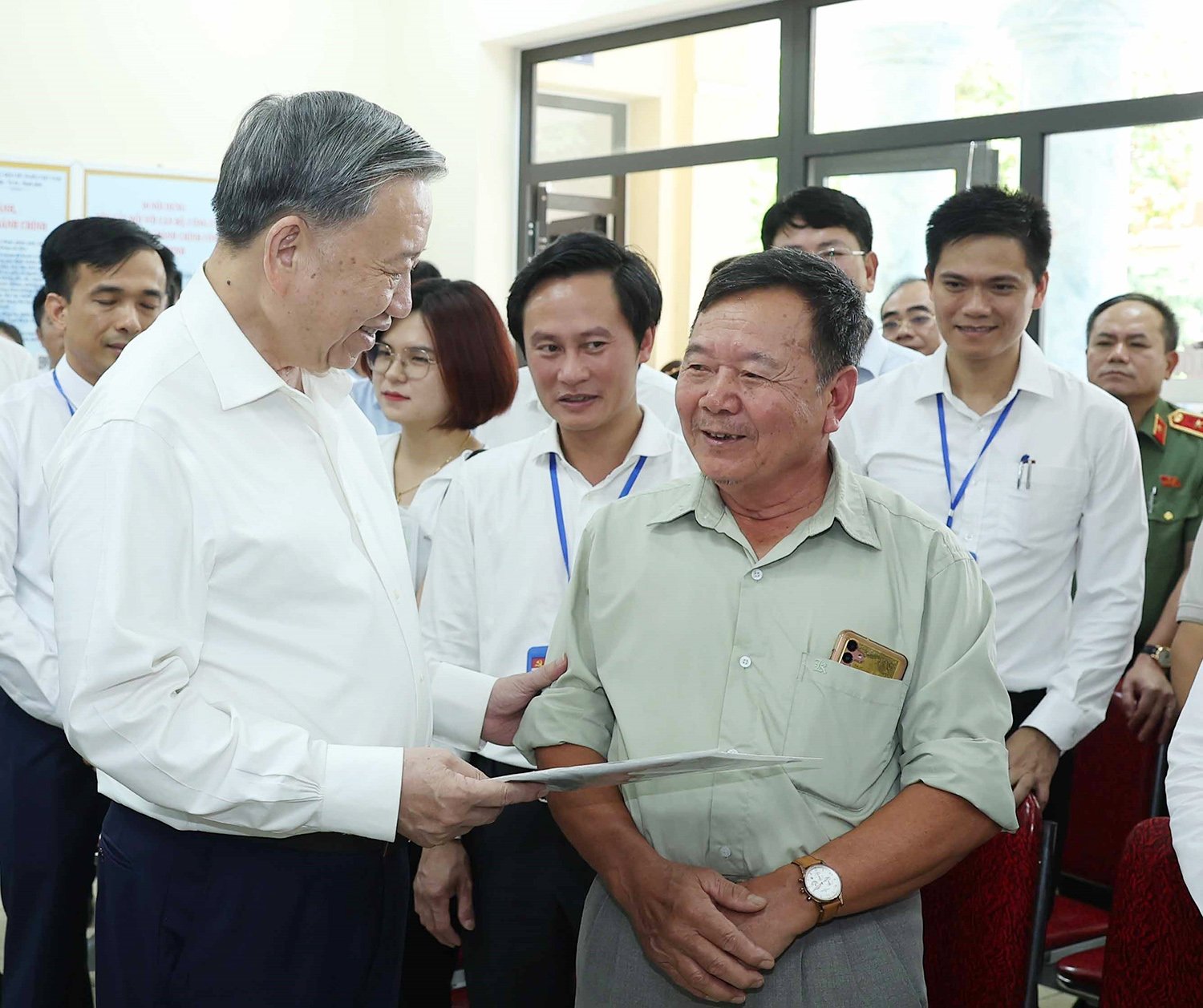
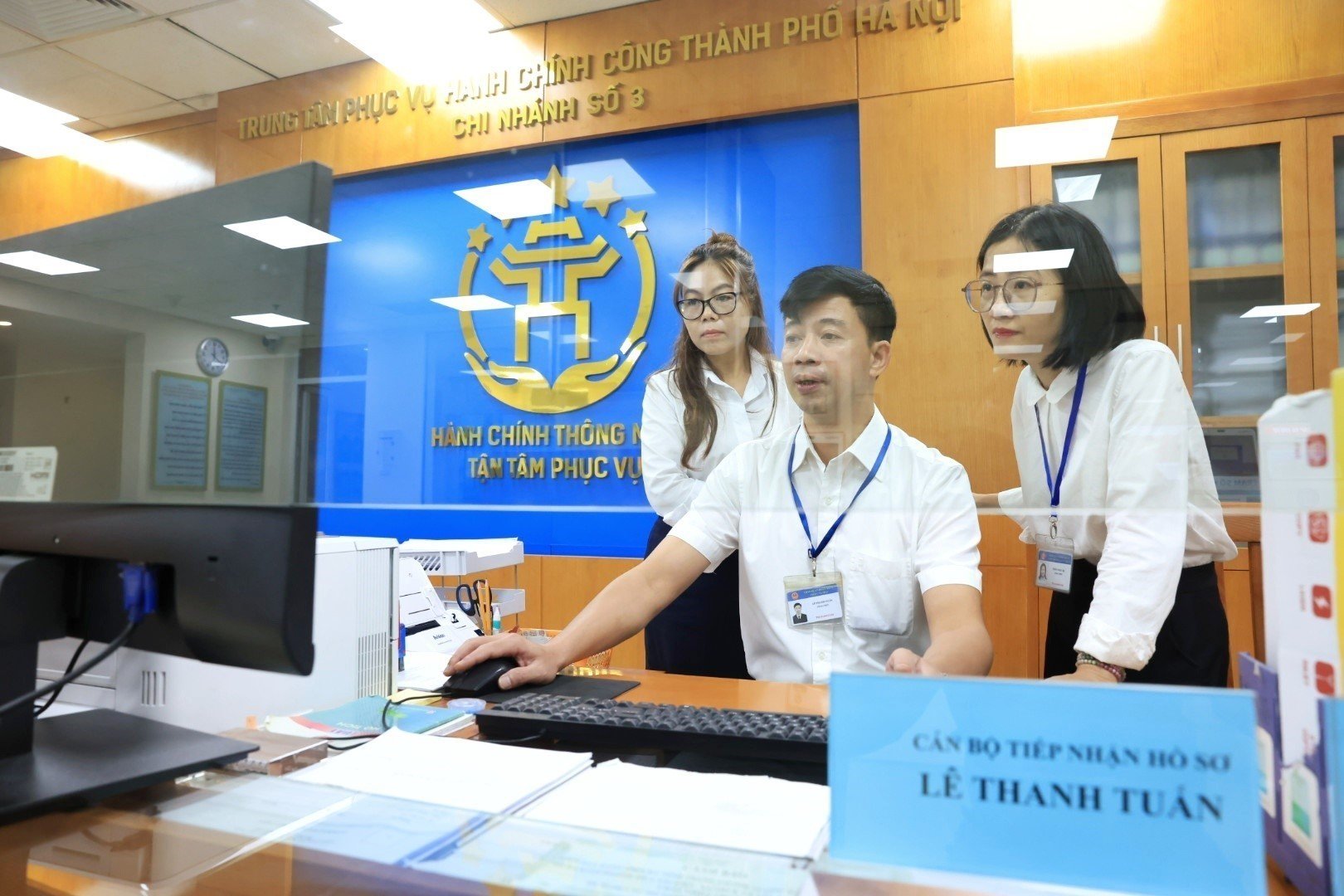

![[Photo] Panorama of the cable-stayed bridge, the final bottleneck of the Ben Luc-Long Thanh expressway](https://vphoto.vietnam.vn/thumb/1200x675/vietnam/resource/IMAGE/2025/9/30/391fdf21025541d6b2f092e49a17243f)
![[Photo] President Luong Cuong receives President of the Cuban National Assembly Esteban Lazo Hernandez](https://vphoto.vietnam.vn/thumb/1200x675/vietnam/resource/IMAGE/2025/9/30/4d38932911c24f6ea1936252bd5427fa)
![[Photo] The 1st Congress of Phu Tho Provincial Party Committee, term 2025-2030](https://vphoto.vietnam.vn/thumb/1200x675/vietnam/resource/IMAGE/2025/9/30/1507da06216649bba8a1ce6251816820)
![[Photo] General Secretary To Lam, Secretary of the Central Military Commission attends the 12th Party Congress of the Army](https://vphoto.vietnam.vn/thumb/1200x675/vietnam/resource/IMAGE/2025/9/30/9b63aaa37ddb472ead84e3870a8ae825)
![[Photo] Solemn opening of the 12th Military Party Congress for the 2025-2030 term](https://vphoto.vietnam.vn/thumb/1200x675/vietnam/resource/IMAGE/2025/9/30/2cd383b3130d41a1a4b5ace0d5eb989d)


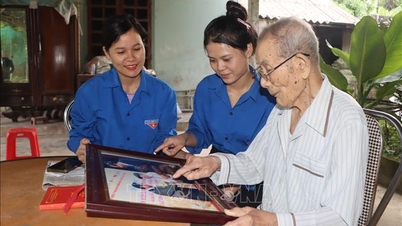


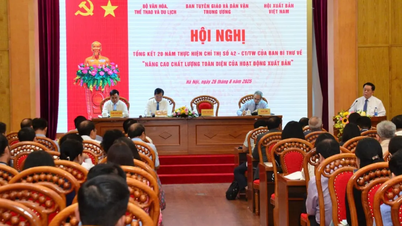

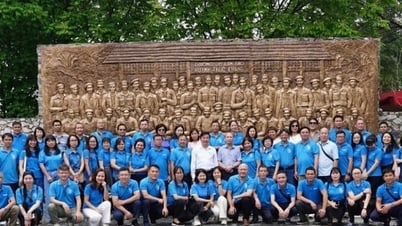


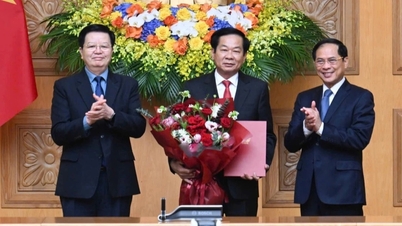

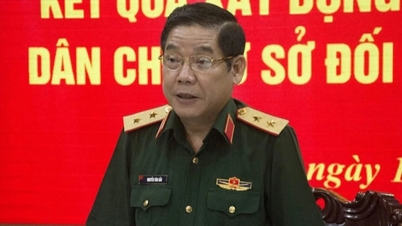
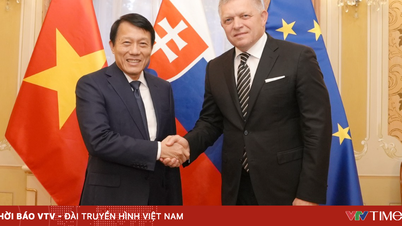

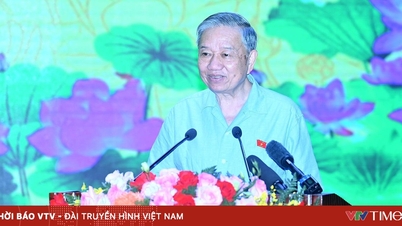


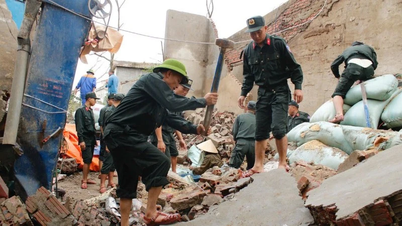




































































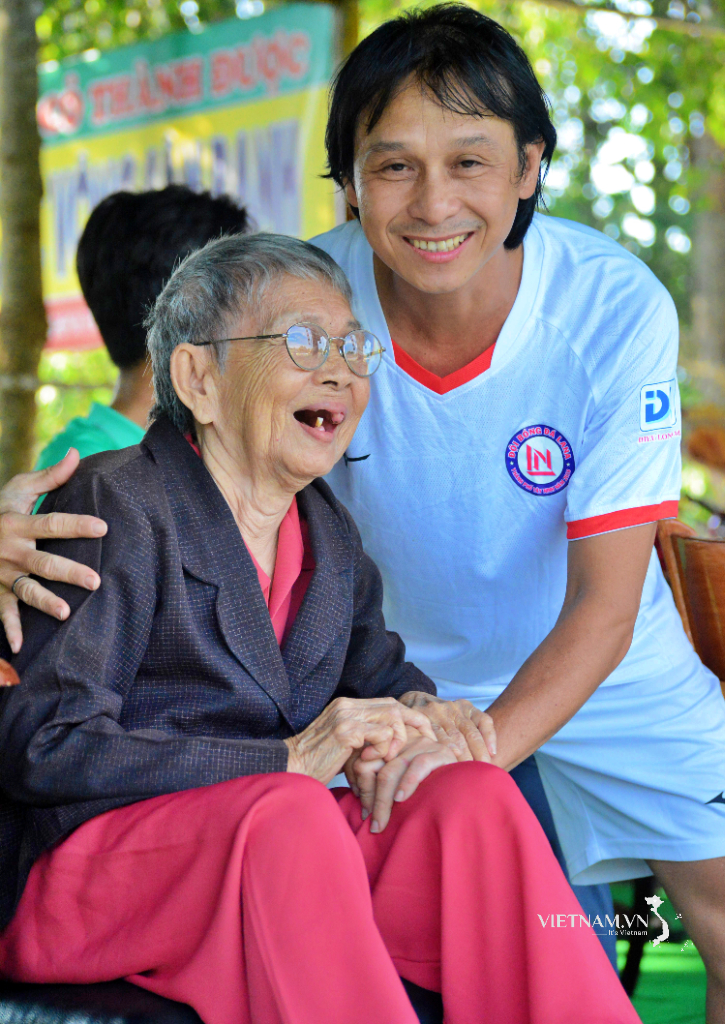

Comment (0)